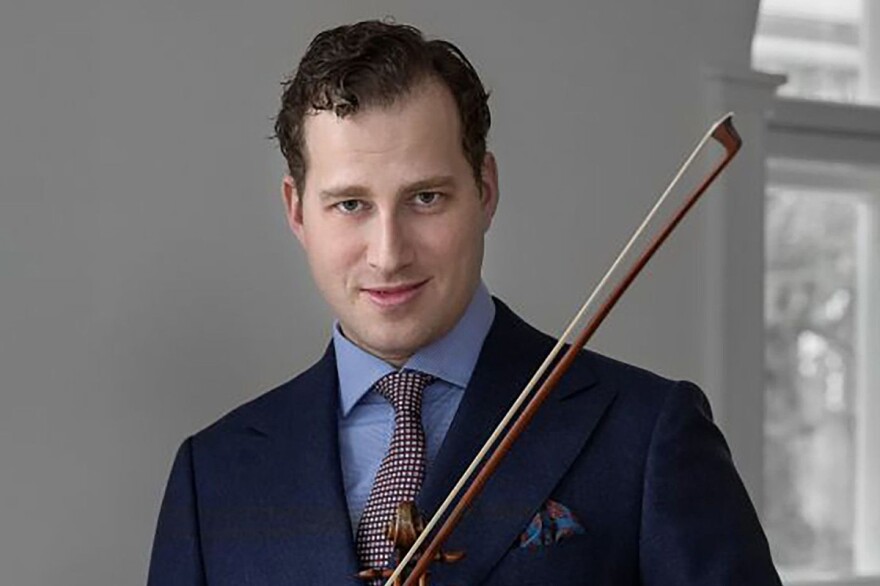Sir Edward Elgar wrote his violin concerto for the great Austrian violinist Fritz Kreisler, who premiered it in 1910. Among those who champion it today is a violinist who feels a personal connection when performing it.
On Sunday, September 29th at 1 PM on WRTI, Nikolaj Szeps-Znaider plays Elgar's Violin concerto with The Philadelphia Orchestra, led by conductor Stéphane Denève. Also on the program is Tchaikovsky's 5th Symphony.
On the printed score of his violin concerto, Elgar wrote: "Herein is enshrined the soul of....." — ending the sentence with only an elipses of five dots.
The work, says violinist Nikolaj Szeps-Znaider, is intensely personal. "[Elgar] said it himself that it's emotional, far too emotional. But I love it. That's one quote..."
"And we know that within this is buried the soul of somebody that he loved very much."
Just exactly to whom Elgar was referring with those five dots has been subject to speculation: that it was someone whose name had five letters, possibly Alice Stuart-Wortley, a family friend of the Elgars, or possibly his wife, Alice.
Performing it also has personal meaning for Szeps-Znaider, who says he loved the concerto but never played it until he began working with Sir Colin Davis, who became his mentor.
"And around the same time, the violin that I play came to me. It was the violin of Fritz Kreisler, to whom the concerto was dedicated."
"And we know that he premiered the Elgar concerto on that. So I thought, well, I have to play it. That was the final thing to make me program it."
The Kreisler Guarneri del Gesu violin was made in 1741 when concert halls and orchestras were much smaller. "Everyting was different from what we imagine today; what we hear today," says Szeps-Znaider.
"And yet, it's still the best most suited instrument to play music that was written in the 19th and 20th century. I find that extraordinary."
Playing on this violin that first made the Elgar concerto come to life if very humbling," he says. "It makes me feel like I'm very privileged to be part of its journey, because I'm only a short part of its journey and hopefully it will go on to a very lustrous life. It feels like a privilege to be one little part of that."


